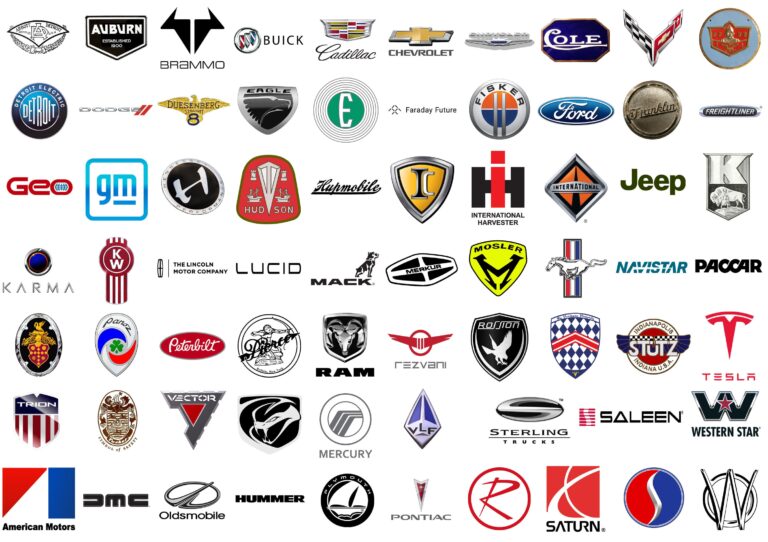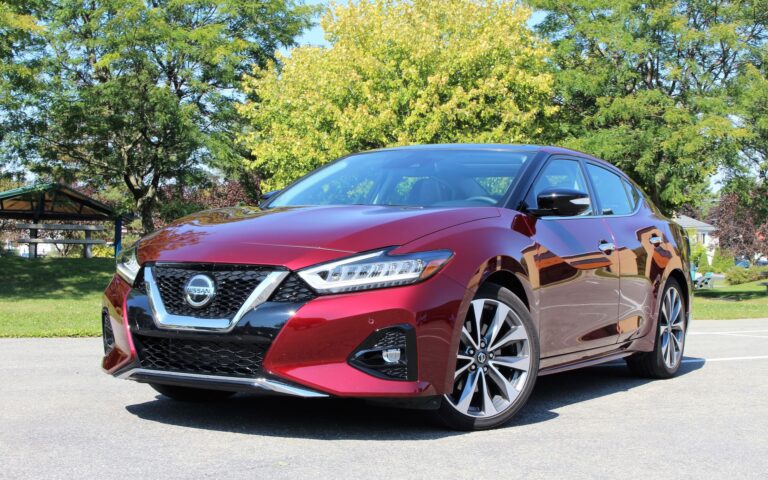How To Get A Brand New Car For Free: A Comprehensive Guide
How To Get A Brand New Car For Free: A Comprehensive Guide cars.truckstrend.com
The dream of owning a brand new car is universal, but the idea of acquiring one for "free" often sounds like a fantasy or even a scam. Yet, in specific, albeit rare, circumstances, it is genuinely possible to get a new vehicle without directly paying for its purchase price. This comprehensive guide will delve into the legitimate, albeit challenging, avenues through which a brand new car can become yours without opening your wallet for the initial transaction.
It’s crucial to clarify upfront: "free" in this context does not mean walking into a dealership and driving away without any effort, luck, or a specific set of circumstances. Instead, it refers to scenarios where the direct purchase cost of the vehicle is absorbed by another entity, won through legitimate means, or effectively negated by an extraordinary combination of incentives. While the car itself might be "free" at the point of acquisition, the ongoing costs of ownership—insurance, registration, maintenance, and fuel—will always remain.
How To Get A Brand New Car For Free: A Comprehensive Guide
The Dream vs. Reality: Understanding "Free"
Before we explore the methods, let’s set realistic expectations. Getting a brand new car for free is not a common occurrence. It typically requires immense luck, significant effort, specific professional circumstances, or a unique financial situation. The concept of "free" here is multifaceted:
- Zero Purchase Price: The most direct interpretation, meaning no money exchanges hands from you to the seller for the car itself.
- Net Zero Cost: Through a combination of trade-ins, rebates, and tax credits, the effective cost of the car could theoretically drop to zero, or even a negative number, meaning you’re effectively paid to take the car (extremely rare).
- Provided as a Benefit: The car is given to you as part of a job, a promotional deal, or a gift, where someone else covers the initial cost.
Understanding these distinctions is key to navigating the possibilities without falling victim to unrealistic promises or scams.

Path 1: The Sweepstakes, Contests, and Giveaways Route
This is perhaps the most direct and exciting way to potentially acquire a brand new car for free, relying heavily on luck. Many companies, particularly car manufacturers, media outlets, and large retailers, run legitimate sweepstakes and contests where a new car is the grand prize.
How it Works:
Participants enter by following specific rules, such as filling out an online form, submitting unique content (e.g., photos, essays), or making a purchase (though "no purchase necessary" entries are often available for sweepstakes due to legal requirements). Winners are typically chosen randomly from eligible entries or based on judging criteria for skill-based contests.
Tips for Increasing Your Chances (Slightly):
- Enter Regularly: The more legitimate contests you enter, the higher your (still very low) chances.
- Follow Reputable Sources: Look for giveaways from well-known brands, established media companies, and verified sweepstakes aggregation sites. Be wary of obscure sites or social media accounts with little history.
- Read the Rules Carefully: Understand eligibility requirements (age, location), entry limits, and submission methods. Disqualification is common for not following rules precisely.
- Consider Skill-Based Contests: While subjective, if you have a particular talent (e.g., photography, writing), skill-based contests often have fewer entrants than pure random draws.
- Beware of Scams: Legitimate sweepstakes will never ask you for money to claim a prize (e.g., "processing fees," "taxes upfront"). Taxes on prizes are paid to the government, not the contest organizer.
Challenges:
The odds of winning a major car sweepstakes are astronomically low, often in the millions. It requires immense patience and an understanding that success is far from guaranteed.
Path 2: Brand Ambassador and Promotional Programs
For individuals with a significant online presence, unique skills, or a compelling personal story, brand ambassador programs offer another route to a "free" car. Companies sometimes provide vehicles to influential individuals in exchange for marketing and promotion.
How it Works:
Automotive brands, or brands closely associated with the automotive industry (e.g., fuel companies, accessory manufacturers), might partner with social media influencers, YouTubers, professional athletes, or other public figures. The agreement typically involves the ambassador driving a specific model, featuring it in their content, attending events, or otherwise promoting the brand. In return, the brand might lease or outright gift the vehicle, often covering insurance and maintenance for the duration of the agreement.
How to Get Involved:
- Build a Strong Platform: Develop a substantial, engaged following on social media, a blog, or a YouTube channel relevant to the automotive industry or a lifestyle niche.
- Create High-Quality Content: Demonstrate your ability to create compelling content that resonates with an audience.
- Network: Attend industry events, connect with brand representatives, and seek out opportunities.
- Professionalism: Be prepared to present a professional media kit outlining your reach, demographics, and engagement rates.
Challenges:
This isn’t "free" in the sense of no effort; it’s a form of compensation for marketing services. It requires significant time, effort, and a continuous commitment to content creation and brand representation. The car is essentially a tool for your work, and the arrangement might be temporary (e.g., a short-term lease).
Path 3: Unique Circumstances & Employer Benefits
Sometimes, a brand new car might come your way through less conventional means, often involving a third party.
1. Gifting or Inheritance:
This is straightforward but entirely dependent on external factors. A wealthy family member or benefactor might choose to gift you a new car. Similarly, inheriting a new vehicle as part of an estate settlement is a possibility, though not something one can plan for.
2. Employer-Provided Vehicles:
Many companies provide vehicles to employees whose roles require significant travel, client visits, or equipment transportation. While technically not "yours" in ownership, it’s a brand new car at your disposal without the direct purchase cost.
How it Works:
- Company Car: Common for sales representatives, executives, or field service technicians. The company purchases, insures, and maintains the vehicle, often allowing for personal use within certain limits.
- Car Allowance: Less common for "free" cars, but some companies provide a monthly allowance for employees to lease or buy their own vehicle. This is more of a subsidy than a "free" car.
Challenges:
Gifting is entirely outside your control. Employer-provided cars are tied to your employment; if you leave the job, the car goes with it. There might also be restrictions on personal use, and a portion of the car’s value for personal use might be considered a taxable benefit.
Path 4: Leveraging Extreme Incentives & Trade-Ins (The "Near Free" Scenario)
While not truly "free" at the point of sale, some rare and specific financial scenarios can bring the net cost of a new car down to effectively zero, or even negative. This typically involves a perfect storm of factors.
How it Works:
- High-Value Trade-In: If you own an extremely valuable or rare vehicle that has appreciated significantly (e.g., a classic car, a highly sought-after limited edition), its trade-in value could potentially exceed the price of a modest new car.
- Stacked Manufacturer Incentives & Rebates: Automakers periodically offer substantial rebates, low-interest financing, or bonus cash, especially on outgoing models, slow-selling vehicles, or during promotional events. Combining several of these (e.g., customer cash, loyalty bonus, military discount, college graduate rebate) can significantly reduce the price.
- Government Tax Credits & Subsidies (Especially for EVs): Many governments offer significant tax credits or direct rebates for purchasing electric vehicles (EVs) or plug-in hybrids. If these credits are substantial enough, and combined with other incentives, they could theoretically reduce the net cost of an affordable EV to zero, or even below.
Example Scenario (Highly Hypothetical):
Imagine a niche EV with a low MSRP. A buyer has an extremely rare classic car worth $50,000 as a trade-in. The EV qualifies for a $7,500 federal tax credit, a $2,500 state rebate, and the manufacturer offers a $3,000 "cash back" incentive. If the EV’s MSRP is $40,000:
- MSRP: $40,000
- Less Manufacturer Incentive: -$3,000
- Less Federal Tax Credit: -$7,500 (applied later, but reduces net cost)
- Less State Rebate: -$2,500 (applied at point of sale or later)
- Less Trade-in Value: -$50,000
In this extreme hypothetical, the combination of trade-in value and incentives could make the net cost negative, meaning you’d effectively be paid to take the car. This is exceedingly rare but illustrates the principle of how "free" can be achieved through financial maneuvering rather than outright gifting.
Challenges:
Finding such a perfect storm of high trade-in value, overlapping incentives, and substantial tax credits is incredibly difficult. It requires extensive research, timing, and a unique starting position.
The Cost of "Free": Hidden Expenses
It’s paramount to understand that even if you acquire a brand new car for free at the point of purchase, the ownership of a vehicle comes with significant ongoing costs. These are often overlooked in the excitement of a "free" acquisition.
- Insurance: A legal requirement in most places, and for a brand new car, comprehensive coverage can be expensive.
- Registration and Licensing: Annual fees to legally operate the vehicle on public roads.
- Fuel/Charging: Unless your employer covers this, you’ll be responsible for powering the car.
- Maintenance and Repairs: Even new cars require routine maintenance (oil changes, tire rotations, fluid checks). While major repairs might be covered by warranty initially, they will eventually become your responsibility.
- Taxes: Winning a car in a sweepstakes or receiving one as a gift means its fair market value is typically considered taxable income. You will owe income tax on that value. Even with employer-provided cars, personal use might be a taxable benefit.
Failing to budget for these ongoing expenses can quickly turn a "free" car into a financial burden.
Practical Advice and Actionable Insights
- Be Realistic: The odds of getting a truly "free" car are slim. Don’t base your transportation strategy on winning a contest.
- Prioritize Legitimacy: If pursuing contests or promotional deals, rigorously vet the source. Look for official rules, contact information, and a history of legitimate giveaways.
- Understand the Fine Print: Always read the terms and conditions, especially regarding taxes, ongoing costs, and any obligations (e.g., promotional duties).
- Budget for Ownership: Regardless of how you acquire it, prepare for the inevitable costs of insurance, registration, maintenance, and fuel.
- Explore All Avenues: If you’re serious, combine approaches. Enter legitimate contests, network for potential brand deals, and keep an eye on extreme market incentives if you have a high-value trade.
- Financial Prudence: For the "near free" scenario, this requires sophisticated financial planning, market awareness, and potentially a very valuable asset to trade.
Path to Free Car: Effort vs. Likelihood vs. Potential Value Table
This table provides a comparative overview of the various paths to acquiring a new car for "free," considering the effort involved, the likelihood of success, and the potential value of the vehicle.
| Method | Likelihood of Success | Effort Required | Potential Vehicle Value | Associated Costs (Post-Acquisition) |
|---|---|---|---|---|
| Sweepstakes/Contests | Very Low (Luck-based) | Low (Entering forms, following rules) | High (Any new car model) | Insurance, registration, maintenance, Income Tax on value |
| Brand Ambassador Programs | Low (Niche/Skill-based) | High (Building platform, content creation, networking) | Medium-High (Often specific models) | Insurance, maintenance, fuel (sometimes covered), Income Tax on value/benefits |
| Gifting/Inheritance | Extremely Low (Random) | None | Varies (Any new car) | Insurance, registration, maintenance, Gift/Estate Tax (if applicable), Income Tax on value |
| Employer Provided | Low (Job-specific) | High (Securing specific job role) | Medium-High (Often mid-range models) | Personal use may incur taxable benefit; usually company covers running costs |
| Extreme Incentives/Trade-in | Low (Perfect Storm) | High (Research, negotiation, financial assets) | Medium-High (Specific models eligible for incentives) | Insurance, registration, maintenance, Income Tax on any net profit from trade-in |
Frequently Asked Questions (FAQ)
Q1: Is it truly possible to get a brand new car for free?
A1: Yes, it is possible through legitimate means like winning a major sweepstakes, being gifted one, or receiving one as part of an employment or promotional agreement. However, these scenarios are rare and often come with caveats (e.g., taxes on the prize, ongoing running costs).
Q2: What are the biggest hidden costs of a "free" car?
A2: The most significant hidden costs are insurance, registration fees, maintenance, fuel/charging, and taxes on the fair market value of the vehicle (as prize income or a taxable benefit). A "free" car is never free to own and operate.
Q3: Are "free car" scams common? How can I spot them?
A3: Yes, scams are very common. Be highly suspicious if you are asked to pay any money upfront (e.g., "processing fees," "taxes," "shipping costs") to claim your "free" car. Legitimate contests will never ask for money to release a prize. They will also have clear rules, contact information, and a verifiable history.
Q4: What’s my best chance of getting a brand new car for free?
A4: For the average person, entering legitimate sweepstakes and contests offers the most straightforward (though still highly unlikely) path. For those with a strong public platform, brand ambassador programs might be an option. For career-driven individuals, a job that includes a company car is a practical route.
Q5: Do I have to pay taxes on a car I win or receive for free?
A5: Yes, in most countries, the fair market value of a car won in a contest or received as a gift or through a promotional deal is considered taxable income. You will be responsible for reporting this income and paying the applicable federal, state, and local taxes. This can be a substantial amount.
Q6: Can I really get a car for "net zero" cost with trade-ins and incentives?
A6: Theoretically, yes, but it’s exceptionally rare. It would require an unusually valuable trade-in, combined with every possible manufacturer rebate, dealer incentive, and government tax credit or subsidy perfectly aligning to reduce the net purchase price to zero or below. This is more about strategic financial maneuvering than a car being simply "given" away.
Conclusion
The allure of a brand new car for free is undeniable, and while it’s not a common occurrence, several legitimate pathways exist. Whether through the sheer luck of a sweepstakes, the strategic engagement of a brand ambassador program, the specific circumstances of employment or gifting, or the rare confluence of extreme financial incentives, the dream can, in very particular instances, become a reality.
However, it’s crucial to approach this aspiration with a healthy dose of realism. "Free" at acquisition does not equate to "free" ownership. The ongoing costs of insurance, registration, maintenance, and taxes are immutable realities of car ownership. By understanding the true meaning of "free" in this context and meticulously planning for the associated responsibilities, you can navigate these unique opportunities with clarity and avoid potential pitfalls, turning a seemingly impossible dream into a tangible, albeit highly sought-after, reality.




